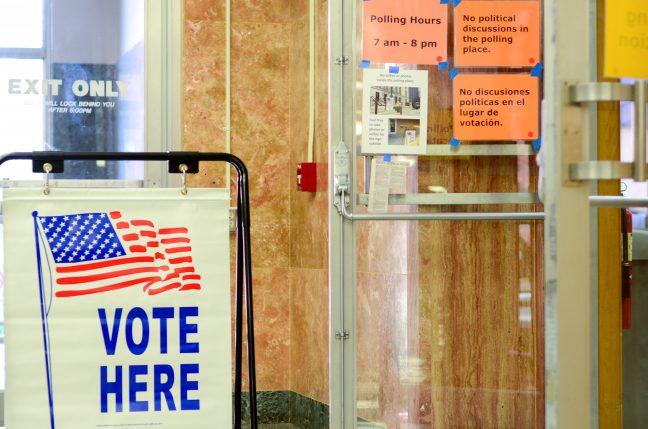Democracy in America is a practically endless affair. Some of us have barely sobered up from Scott Walker’s gubernatorial defeat and already races for mayor, city council and school board are afoot.
Yet despite the apparent abundance of democratic procedures, there is shockingly low buy-in. For example, the 2018 spring elections — standing on their own without the presidential primary that sometimes buoys numbers — saw a “strong” turnout of just under 33 percent. Even this dismal figure is probably the product of a particularly agitated political moment — the average statewide turnout for these elections since 2000 has been 21.5 percent.
Suppose, for the sake of argument, that abstention is a vote of no-confidence for an institution as it exists. Then it might seem like a crushing majority of Madisonians would prefer that local government, in its current form, didn’t exist.
Why is this? Why don’t people care enough to go down to their local rec center and pencil in a few bubbles once every six months or so? One could chalk it up to how difficult it is to vote — from getting time off work to ensuring all one’s paperwork is in order, it certainly can be a hassle.
To increase voter turnout, don’t look to automatic voter registration
But while logistical difficulties certainly do depress turnout to some extent in all elections, the other side of that reasoning is that if people thought it mattered, they would make time.
Madison thought the 2018 midterm elections mattered — that’s why two-thirds of the city turned out. Let’s not beat around the bush. The fact is, people don’t participate in local elections because they don’t feel that they matter.
And to a certain extent, they’re right. Part of the trouble with these local elections is that casting a vote in them is a very indirect way of influencing someone who doesn’t have that much power to begin with. Take a look at how many significant areas of legislation are completely cordoned off to local legislatures.
ASM spring election renders UW’s lowest voter turnout in recent history
Rent control is pre-emptively excluded by the state government, so you can basically forget about voting in an alderman to make your rent cheaper. So are minimum wage laws, so forget about having your paycheck track with that cost of living you can’t control anyway. Sorry, schmuck. And that’s to say nothing of things that local governments don’t even pretend to have control over, like police conduct or racial segregation.
What this means is that regardless of who wins these elections, the vast majority of regular people will feel little change in their daily lives. One could argue that this is the case for state and national politicians too, but certainly less so — see the aforementioned state preemptions.
As students in particular, we feel this continuity. We have no power in the classroom. We have no real power on campus. We usually have no power at work. We aren’t satisfied by local elections because try as they might, they simply can’t offer sufficient relief to this helplessness. They just add more procedure. All the bloviating about civic virtue can’t smother the feeling one gets while voting in a small-time election — the same feeling one gets waiting in line at the DMV just to be told at the counter that they can’t help you.
Automatic voter registration valuable first step in combatting restrictive voter ID laws
There are exceptions. After all, these officials aren’t just playing Minesweeper all day — they do actually do things. Take a look at the No Cops in Schools campaign. The Madison school board, an elected council, can determine whether high school students will see a cop every day — which, in a city with staggering racial discrimination by police, is a huge deal. A community coalition saw this opportunity and tried to seize it. They protested and they lost, but they promised to be back around election time. They very well might win with this electoral strategy.
The problem is that there aren’t many situations like that. There are only so many things that a city council representative can do, and sometimes even getting them to do it can require a huge amount of effort. So, right or wrong, most people stay home.
Maybe the question about local elections is what one defines as usefulness. In a very limited sense, local elections offer a chance for people to influence their lives. But even discussing what one can control by voting in a city election implicitly highlights what cannot be controlled in that way — and that sphere is enormous.
For people who want some sort of genuine control over their communities, their workplaces and their lives, that evidently is not enough. Expand the meaning of municipal democracy and perhaps people would care. Until then, get used to 20 percent turnout.
Sam Palmer ([email protected]) is a recent graduate with a degree in biology.





















